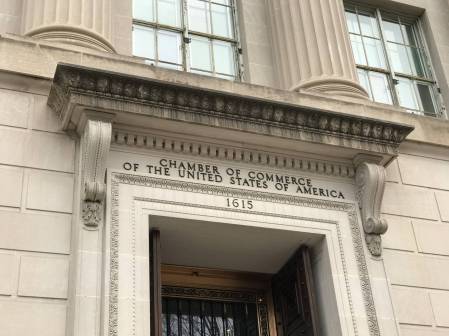Industry groups urge state legislators to oppose tracking software bills

A coalition of 14 trade associations and professional organizations issued an open letter to state officials around the country Monday, urging them to oppose bills that would require government contractors to install invasive monitoring software that critics say would create severe data security and privacy risks.
The letter is the latest push against bills that have appeared in at least 30 states following an aggressive lobbying effort bankrolled by TransparentBusiness, a little-known software firm that publishes tracking software that it claims stops contractors from over-billing their clients. Under the measures — which contain some slight differences but all appear to be adapted from the same template — contractors doing at least $100,000 of work for state governments would be forced to buy software that takes screenshots of the user’s computer at least once every three minutes and store those images for at least seven years. Most versions of the legislation also call for constant logging of keystrokes and mouse movements.
But the groups behind the new letter, which include organizations representing accountants, engineers and technology professionals, argue that the bills’ claimed goals of improving contractor accountability and government transparency would do so at the expense of exposing workers’ and citizens’ personal information and raising the costs of doing business. The coalition also includes ALEC Action, the advocacy arm of the American Legislative Exchange Council, a conservative policy group known for distributing model legislation to states.
“The software would capture everything including sensitive data like passwords, personal health information and other personally identifiable information with no mechanism for redaction before being recorded or stored,” the letter reads. “Furthermore, the legislation would effectively mandate the installation of third-party spyware on state-owned and personal/privately owned devices for the sole purpose of reclassifying sensitive data for time-keeping purposes.”
The letter goes on to suggest that making contractors use tracking software would strain states’ budgets, noting that none of the bills contain any appropriations to cover the costs of buying, installing and operating the program.
“As a result, these bills would likely lead to higher costs for states and taxpayers in two ways,” the letters states. First, it argues that purchasing the software and the data storage needed to house the required screenshots could be prohibitive for some smaller vendors. Second, the letter claims contractors that do obtain the software would face additional privacy and security costs, which would be passed back to their customers.
While TransparentBusiness has gotten lawmakers in 30 states to introduce legislation favoring its software so far — and engaged lobbyists in several more — none of the bills have passed.
The first alarms on the company’s activities were raised last month, when the National Association of Chief Information Officers put out a rare political statement urging lawmakers to defeat the bills over fears that they would potentially put every affected state IT contract in breach of federal privacy laws.
“While NASCIO certainly supports contractor productivity, cost efficiency and successful project outcomes, legislation of this nature could introduce unnecessary risks to citizen data by essentially transferring ownership of private citizen data to a third party,” the group said at the time.
Since beginning its lobbying spree, TransparentBusiness has also shopped itself around to potential investors, promising astronomical returns — as much as 90,000 percent — if any of the state bills became law. At one point, the company also offered to pay its lobbyists in stock, a strategy modeled after the example of Bradley Tusk, who lobbied New York City officials on behalf of Uber in exchange for equity in the ride-hailing company.
Accusations of lying
In response to the new letter from the industry groups, TransparentBusiness’ founder and chief executive, Alex Konanykhin, accused the groups of lying about his company’s efforts.

Alex Konanykhin (LinkedIn)
“As the opponents of transparency cannot attack transparency or fraud prevention per se, they resort to making patently false statements,” Konanykhin told StateScoop in an email. “It proved to be irresistibly tempting for the opponents of transparency to try to manipulate legislators by using a scary ‘spyware’ word in total disregard of the truth but the fact remains: no third party obtains access to the billing verification data, as long as the contractors chose not to outsource storage.”
Konanykhin also said the groups are resorting to a “blatant lie” in suggesting the tracking software legislation would raise states’ costs, noting that all of the bills contain language explicitly barring vendors from charging governments to acquire the required programs.
“Overall, the disinformation campaign launched by the anti-transparency champions is doomed: transparency has already become the standard in many areas of life despite similarly fierce opposition (body cams for police, fleet control for truckers, etc.),” he wrote. “And it’s clear that to continue paying for services without verification is the invitation for some contractors to rob states blind.”
But the letter published Monday argues that building oversight expenses into contracts could achieve the goals of transparency at much lower costs than what TransparentBusiness is proposing.
“Adding mechanisms for transparency and oversight at the onset of the RFP process and clearly defining project evaluation methods would achieve the underlying goal of this legislation at lower costs and without the added risks presented by inviting third-party tracking software into public and private IT environments,” it reads.
And while TransparentBusiness’ lobbying and legislative efforts — while still fruitless — continue, the groups behind the letter add considerable weight to the opposition.
“We thank the coalition for speaking out on this important issue and bringing a broader base of constituencies to the conversation.” NASCIO Executive Director Doug Robinson told StateScoop.
Read the letter
https://www.documentcloud.org/documents/5780729-Tracking-Software-Industry-Opposition-Letter.html






